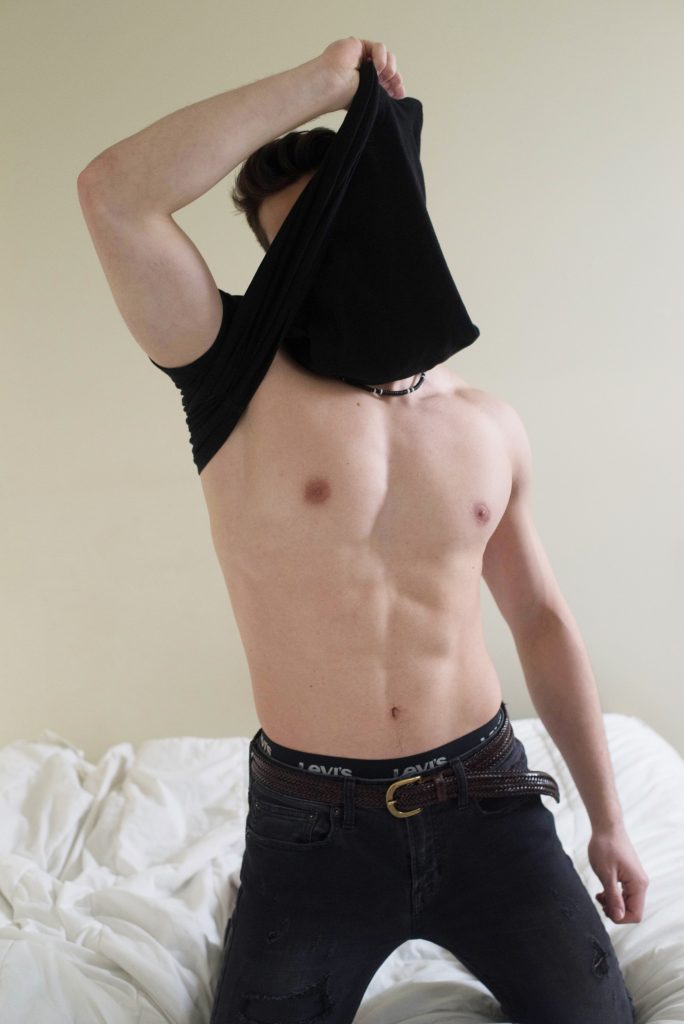
Sexual and gender identity spectrums have been around since the dawn of time and are recognized as legitimate all over the world. From the Muxhe living among the Zapotec in present-day Mexico, to Thailand’s Kathoey traditions, to Italy’s Femminiello culture — the existence of sexual and gender nonconformists is both global and ancient. But despite its historic heritage within various cultures, even today, acknowledging and further accepting nonconforming sexual and gender identities and their history is perceived as broadly threatening.
The inclusivity of transgender or gender noncomformist groups is often seen as a danger to cisgender rights, to their personal safety and simply to the entire fabric of our society. For example, consider that the superficial moral “panic” caused by these groups using the bathrooms of their choice, based on their true identity, has gone as far as to produce violent reactions from those sharing the same space. In an attempt to justify such cruelty, the “trans panic defense,” or the more general “LGBTQ+ panic defense,” is a legal strategy invoked by perpetrators where the blame for an assault is placed on the victim’s sexual or gender orientation. Underlying these brutal motives against trans women in particular is the notion that within the bathroom battleground, they’re merely men seeking to mask as, and subsequently prey on, “real” women.
By “othering” those who identify as anything beyond cisgender, we place these individuals in a box seemingly out of reach of universal validation and support. The inherently detrimental “us versus them” dichotomy, which demands artificial and binary constructions of difference in the misguided name of self-preservation, continues to severely plague much of humanity. An all-embracing tolerance is the mark of an advancing world, reinforced by equitable treatment and the validation of others’ harmlessly honest existence. Yet, the rising backlash against trans and non-binary individuals is both never-ending and outrageously inhumane.
Controversy over the removal of the Venus symbol from sanitary pads made by the menstrual product company Always, for example, constitutes the kind of misguided aversion that assumes expanded inclusivity is a liberal attack on longstanding cultural traditions. The move was enforced by the parent company Procter & Gamble, stating their commitment to diversity along with a leading regard for their customers’ mental health and the possible damage caused by the symbol’s innately female-coded imagery. Although mental health is a topic commonly referenced when considering gender issues, it’s not usually to support the well-being of the ostracized, but for cisgender people completely removed from the effects of increased inclusivity.
The most prominent arguments concerning these mentally altering consequences is related to that of children. The so-called justification is often along the lines of “children are too young to be exposed to sex” and “kids can’t comprehend such complex matters!” This misguided notion obscures the fact that firstly, children aren’t inherently asexual beings. Exposure to the realities of the sexual spectrum will aid them in the personal construction of their identities, as well as increase the general acceptance of individuals different from themselves. This is especially important in the case of children identifying beyond the binaries of what’s predominately accepted in society. For the sanctity of a united and healthier future, these children deserve to grow up surrounded by confirmation rather than ridicule, principally by the figures meant to support them as they face a typically unforgiving world.
The greatest challenge to standardized inclusivity for trans and gender nonconforming individuals is the notion of their inherent “dangerousness.” Such a position is greatly influenced by the lack of these individuals’ representation in the media, as their continuous invisibility lessens the legitimacy of their existence. Additionally, the production of negative representation only functions to further dehumanize and alienate these groups, which obviously produces incredibly detrimental effects on their mental well-being. Such publicly negative depictions of trans individuals relates to their characters’ typical construction as significantly one-dimensional.
The most frequent profession for these characters in media is that of sex workers, while they’re further restricted to the production’s role as a killer, villain or the victim of gross brutalities based solely on their identity. The thin line between confusion and condemnation is routinely exemplified by various individuals in influential positions, from politicians to popular public figures. They ceaselessly perpetuate the stereotype that this whole “sexuality issue” is too modern to fully comprehend and requires time to accept. In an interview this past November, Hillary Clinton forwarded the position that trans affairs pose a “legitimate concern” for cisgender women, and the advancement of their rights necessitates a “very big generational discussion.” Besides advancing the deeply problematic notion that trans identities are a new concept, although their existence has been internationally affirmed for centuries, her words fuel and validate bigotry. This reckless rhetoric is not only appallingly far behind the times, but legitimizes the efforts of those seeking to shroud and erase the factual reality of sexuality’s biological universality.
Man-made divides constructed between different identities are used to produce more inequalities between groups and perpetuate hierarchies of domination. These fabricated ideological power structures forcefully infiltrate every facet of our social, political and economic spheres. The imagined binaries separating “normalcy” from “abnormality” make some groups seem more deserving of a respected and elevated societal status, fundamental rights and the protection of the most sacred human liberties. How could individuals who choose to live every day as the most authentic version of themselves deserve to be denied the bare minimum of human decency and acknowledgment, as they’re mocked and told their reality is a lie? Although it’s obvious the world is quick to disregard the existence of those who seem to fall outside the scope of mainstream sexual conventionality, our incessant alienation of other human beings is a cruelty without a shred of justification.
Miranda Jackson-Nudelman is a junior majoring in political science.



